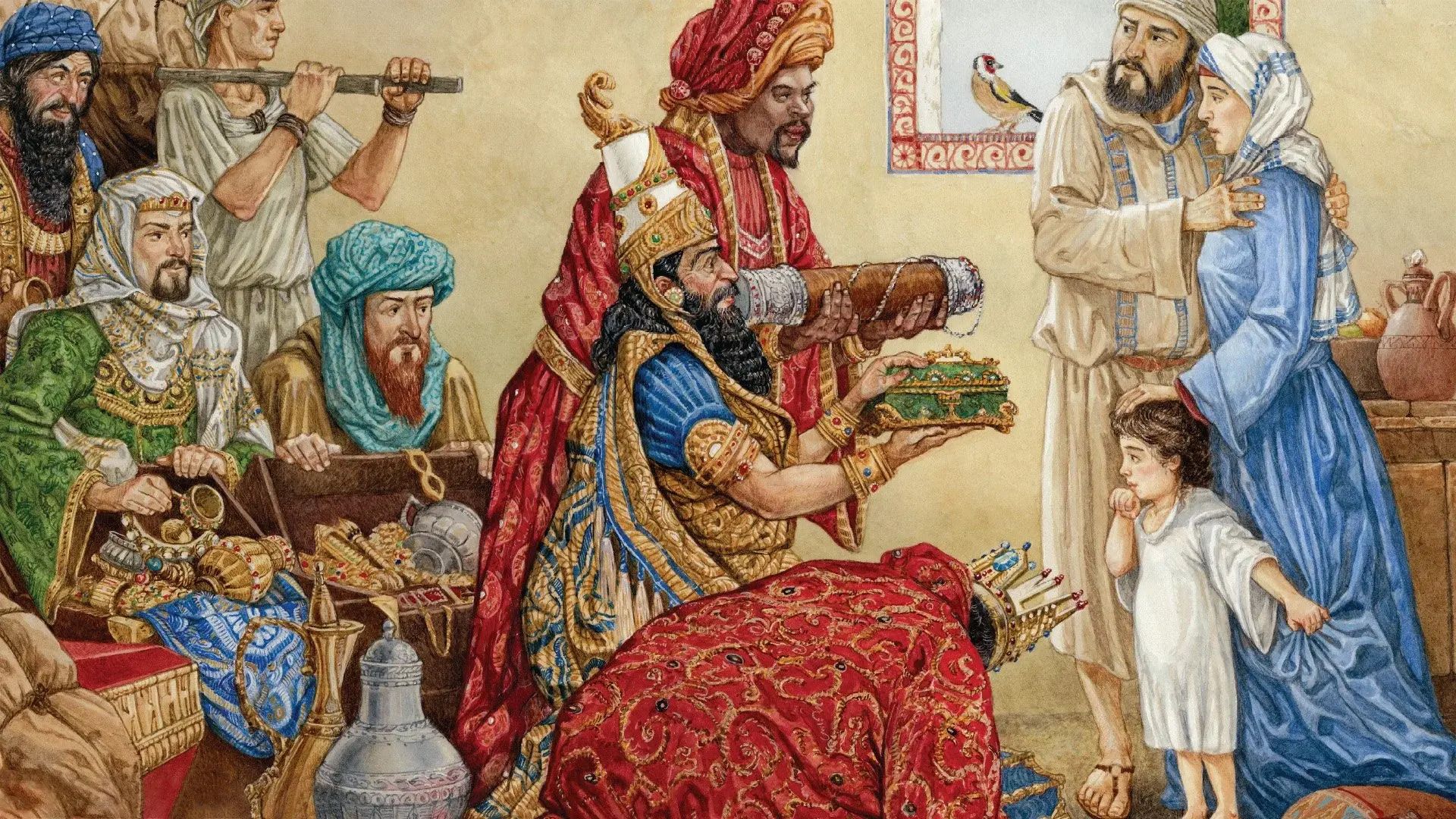
Dear Kingdom Builder,
When people picture the birth of Jesus, they often imagine a quiet stable, a few shepherds, and three wise men kneeling before the manger with tiny boxes of gold, frankincense, and myrrh.
It’s a beautiful scene—humble and serene—but it misses the true magnitude of what actually happened.
Because the real story of the Magi’s visit changes how we understand Jesus’ life, His mission, and the way God provides.
Matthew 2 describes “Magi from the east” coming to Jerusalem, asking, “Where is the one who has been born king of the Jews?”
The Bible never says there were only three of them. In fact, the term Magi referred to a powerful class of scholars, advisors, and financiers that dated back to the prophet Daniel.
In Called to Prosperity, I explain how Daniel—after interpreting King Nebuchadnezzar’s dream—was placed in charge of these wise men. Over the next five centuries, his prophetic writings about the coming Messiah were preserved and studied by their successors. These were not casual travelers; they were the intellectual and spiritual elite of the Persian Empire, men who advised kings and managed immense resources.
So when the star appeared, they didn’t simply saddle three camels. They organized a massive royal caravan. Biblical historians estimate hundreds of men—perhaps 300 Magi along with servants, guards, and supply wagons—crossed the desert to honor the newborn King. Their arrival “disturbed” King Herod and “all Jerusalem with him” (Matthew 2:3).
When the Magi finally reached Bethlehem, Jesus was about 2 years old. The Magi “opened their treasures” (Matthew 2:11). That phrase in Greek—thēsauros—means more than a small box. It suggests storehouses or treasure chests overflowing with wealth.
We tend to focus on the gold, but in the ancient world, gold was actually the least valuable of the three gifts. Frankincense, a rare resin used for worship in the temple, and myrrh, a costly perfume and medicinal oil, were worth far more by weight than gold itself. These were luxury items traded on the same level as precious gems and spices.
Scholars who have studied the economic value of the Magi’s gifts estimate that the gold alone was worth more than $10 million today. Ten million dollars brought by foreign dignitaries to honor the King of Kings!
Within days, Joseph was warned in a dream that Herod planned to kill every male child in Bethlehem. The family fled to Egypt in the middle of the night. That journey—and their years living as refugees—would have been impossible for a poor carpenter and his young wife.
But because of the Magi’s offering, they had more than enough. God had already supplied the means for their protection, travel, and housing. That wealth covered everything needed for Jesus’ education and upbringing, and I suspect, it later supported His public ministry.
For three years, Jesus and His twelve disciples traveled full-time across Israel. They had food, lodging, and the ability to minister freely without relying on day-to-day wages. The Scripture even tells us that Judas carried the group’s money bag (John 12:6), implying a steady treasury.
So was Jesus poor?
Not in the way we often think. He chose humility, simplicity, and dependence on His Father—not because He lacked provision, but because He modeled stewardship, generosity, and had a mission that required a minimalist lifestyle.
The story of the Magi reveals a pattern that runs throughout the Bible: God uses wealthy, obedient believers to resource His plans.
Abraham financed rescue missions.
Joseph stored grain that saved nations.
David gave out of his personal fortune to build the temple.
Lydia funded the spread of the Gospel in Europe.
And at the very beginning of the Gospel story, God moved on the hearts of these Eastern financiers to deliver wealth for His Son’s purpose.
That principle still applies today. God doesn’t oppose wealth, but He does expect it to serve Kingdom purposes.
When you give toward God’s Kingdom, you participate in the same divine flow of provision that existed in Bethlehem. You’re aligning your resources with His redemptive plan.
So, was Jesus wealthy?
By earthly standards, He may not have owned property or built personal wealth. But He lacked nothing. Every need was met. Every mission was funded.
The real question isn’t whether Jesus was wealthy — it’s whether we’ll recognize, like the Magi did, that all true wealth begins and ends with Him.
For His Kingdom,
Aaron DeHoog
Founder and 49% Owner, Abundant Prosperity